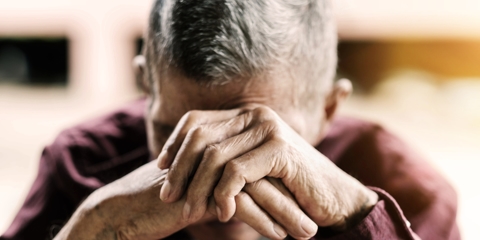Elder abuse used to be an uncommon experience. Nowadays, though, it is an epidemic. It is a problem that is widespread and underreported. It happens in every country. In the United States, it is estimated that 10% of seniors over the age of 60 have experienced some sort of elder abuse.
Elder abuse is not always easy to detect. While victims who are physically or sexually assaulted may show injuries, there are other types of abuse as well. Psychological abuse, financial abuse, and neglect do not always come with clear, tangible signs.
Another thing to keep in mind is that elder abuse is often unreported. Even if your loved one does suffer from some type of abuse, they may not want to tell you. They may be afraid of the possible repercussions, such as retaliation. Many people are scared of their abusers and definitely do not want to say anything if their abuser is also their caregiver. It may also be possible that the victim does not even know they are being abused. This is especially possible if the abuse is not physical in nature.
Because of these potential barriers, it is critical for family members to be proactive when it comes to their loved one’s care. The best thing you can do is be involved in your loved one’s life as much as possible. Regularly check up on them and use your best judgment. If your loved one ends up injured, be wary. Sometimes caregivers or nursing home staff members may claim that something else caused the injuries to cover up the abuse.
Be aware of the signs and take action if you suspect something is wrong. Here are some things you should look for as well as next steps you should take if abuse is happening.
Signs of Elder Abuse
Here are some signs that your loved one may be a victim of abuse:
They have unexplained injuries. If your loved one has lacerations, burns, bruises, broken bones, or other injuries, it could be abuse. While falls and other accidents are possible, there should be a plausible story. If nobody can explain why the injury occurred, then it is likely a coverup of some sort of physical abuse.
They have a change in mood or attitude. If your usually happy family member seems unusually sad or confused, do not just brush it off as old age. They are probably victims of abuse and afraid to say anything. Abused elders may be hesitant to talk freely. They may have anxiety and fear. They may be angry.
They are isolated from others. If your loved one is withdrawn from others, whether intentionally or not, this could be abuse. Caregivers should not be keeping patients away from each other so that they cannot socialize.
They look neglected. This can present itself in various ways. Humans have a right to their basic needs, which include food, water, medication, clothing, shelter, and hygiene. If your loved one is not getting enough food or water and looks malnourished, then they are probably being neglected. What about medication? How is their hygiene? Do they look dirty or unkempt? If so, bring it up to the nursing home staff.
They had bedsores. Bedsores should not be happening. They are totally preventable, so if your loved one has them, then nursing home staff is not doing their job properly. If your loved one cannot move on their own, then staff needs to assist. They are being neglectful if they do not come in regularly to do so.
There are major financial changes. You may not feel comfortable reviewing your loved one’s finances, but you really should. That way, you can check for financial abuse, which is also very common in nursing homes. A staff member may be trying to take your loved one’s money or assets, so be aware and alert.
What Happens Next?
Let’s say you suspect elder abuse. What do you do now? If your loved one’s life is in immediate danger, call 911 or the police right away.
If it is not urgent but you have suspicions, talk to your loved one about it. Do you have any concrete evidence? What do they say about it? If your loved one is not being forthcoming about it, talk to the manager of the nursing home and get their input.
If they are denying the accusations, you should still tell someone. Contact your local adult protective services. You can also call the Eldercare Locator helpline at (800) 677-1116. The operators can refer you to agencies that can help. The Eldercare Locator is open Monday through Friday, 9 a.m. to 8 p.m. Eastern Time.
As mandated reporters, doctors are required to report suspected abuse or neglect. If your loved one seems to have injuries, it won’t hurt to get them checked out by a medical professional.
It may also be helpful to contact a nursing home abuse lawyer. An experienced lawyer can assess your case and help you understand your legal options. They will hold the nursing home or other party liable for their action and take other actions to protect your loved one. A lawyer can also help you file a report with the authorities, which can help you pursue any criminal or civil charges that may be available.
Contact Newman Law Group Today
Elder abuse can happen in many ways. It is important that families know the signs so they can protect their loved ones and stop the abuse from continuing to happen.
Learning that an elderly loved one is being abused by a supposedly trusted caregiver can be a shocking experience. The experienced team at Newman Law Group, LLP can assess your case and help you understand your next steps. Schedule a consultation with our office today by calling (916) 352-3230 or filling out the online form.


.jpg)

